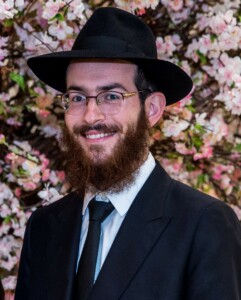Guest column by Rabbi Mendel Liberow: Holocaust Remembrance Day — a time to reflect
The lessons from the Holocaust are more relevant than ever.
![]()

The arrival of Hungarian Jews at Auschwitz on selection ramp at Auschwitz, May 1944 Photo courtesy German Federal Archive
By Mendel Liberow

Mendel Liberow
On the eve of Passover 1943, the Jews of the Warsaw ghetto began what came to be known as the Warsaw ghetto uprising. Although few in numbers, starving and weak, the brave resistance fighters fought against the Nazis for 27 days.
We commemorate this day worldwide on Holocaust Remembrance Day, taking place this year on April 28. This is a day to reflect on the atrocities, remember the millions of victims, and learn lessons from the Holocaust.
The Holocaust may seem to many as ancient history, impossibly removed from our current global multicultural society. But in truth, the lessons from the Holocaust are more relevant than ever. We live in a fractured society divided by an “us vs. them” mentality. Antisemitic incidents in the United States are at an all-time historical high.
In Europe, the images of fleeing Ukrainian refugees seem more appropriate for 1943 than 2022. Scenes of bombed city streets and horrific reports from places such as Bucha are a reminder that war and suffering still exist and are not something only to be read about in a history book.
The past never seemed more related to our present. Although the Holocaust ended in 1945, war, antisemitism, genocide, and hatred continue throughout the globe. And so it’s not enough to just remember the past. We need to take heed of the past to inform our present. But what lessons can we learn from the atrocities of the Holocaust? What should we remember on Holocaust Remembrance Day?
 We need to remember that evil starts small. The Holocaust began with othering. In 1935, the Nuremberg Race Laws changed the everyday lives of Jews in Germany by making Jews legally different from other Germans. Holocaust Remembrance Day is a time to focus on our shared humanity. To recognize how much we all share. To remember that there is more that unites us than divides us.
We need to remember that evil starts small. The Holocaust began with othering. In 1935, the Nuremberg Race Laws changed the everyday lives of Jews in Germany by making Jews legally different from other Germans. Holocaust Remembrance Day is a time to focus on our shared humanity. To recognize how much we all share. To remember that there is more that unites us than divides us.
It is a time to remember that the actions of an individual make a difference. Today, Oskar Schindler, Irena Sendler, Raoul Wallenberg, Chiune Sugihara and others are well known for their bravery in saving thousands of Jews from death.
But at that time, they were going against the tide, risking their lives and the lives of their loved ones on a dangerous mission. Holocaust Remembrance Day is a time for us to remember to take a stand against evil and hatred and to believe that we, too, can make a difference.
We must stand firm against all forms of antisemitism, racism, hatred, and evil. We must not let genocide and corruption go unchecked, even if it is across the globe. Our voices and actions collectively can create the positive change our world needs.
And finally, we must know that we are all interconnected. What happens in a different city, country, or even a different continent affects us here. In turn, our actions can affect those far away. We live in a global society, and the power of our acts of kindness, our willingness to stand up for what’s right, share truth and recognize our shared humanity can have a tremendous impact on the world.
This year on Holocaust Remembrance Day, let’s all recommit ourselves to creating a world where our common humanity is recognized and our unique differences are celebrated.
Let’s make sure that the atrocities of the Holocaust are not forgotten and that we learn from our past to create a brighter, more equal future for us all.
Rabbi Mendel Liberow is the director of Chabad South County Jewish Center in Morgan Hill, which offers Jewish education, outreach and social service programming for families and individuals of all ages, backgrounds and affiliations. For more information, visit JewishMH.com.
